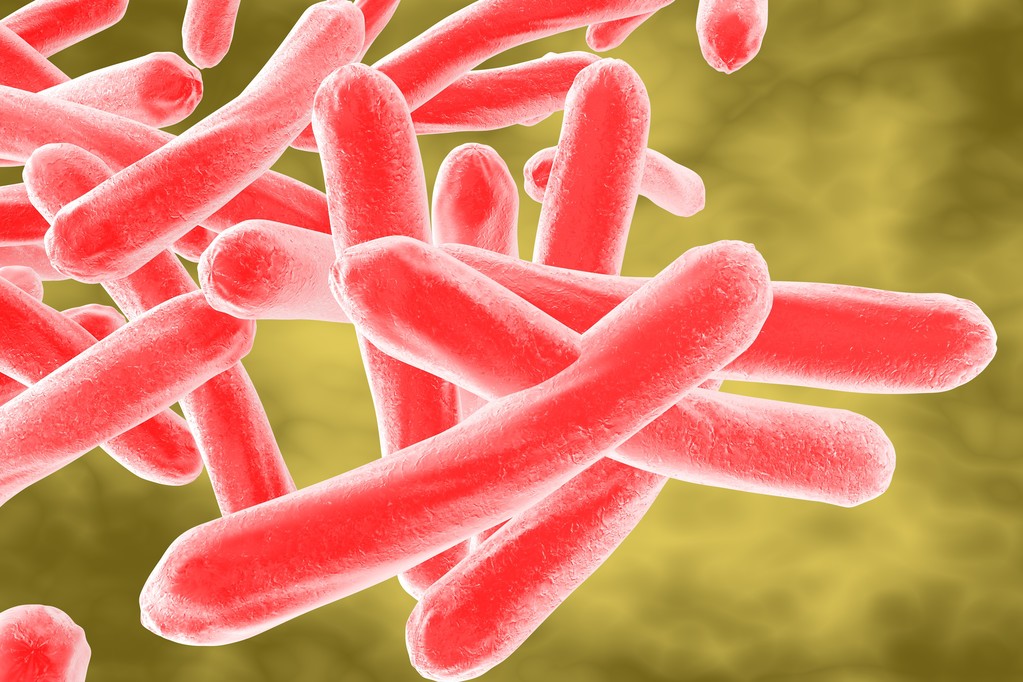The marijuana compound cannabidiol (CBD) showed strong antimicrobial effects in a newly published study.

Mycobacterium tuberculosis.
The study will be published in the upcoming issue of the journal Cannabis and Cannabinoid Research, with the abstract published online ahead of print by the US National Library of Medicine. The study is titled Antimicrobial Effect of Cannabidiol on Intracellular Mycobacterium tuberculosis, and it was conducted by researchers at the Universidad de Buenos Aires, Universidad Nacional de Hurlingham and CONICET, all in Argentina.
“Mycobacterium tuberculosis, the etiologic agent of tuberculosis (TB), has killed nearly one billion people during the last two centuries”, notes the study. “Nowadays, TB remains a major global health problem ranked among the top 10 causes of death worldwide.”
One of the main challenges in developing new strategies to fight TB “is focused on reducing the duration and complexity of drug regimens.”
The purpose of this study “was to investigate the antimicrobial effect of CBD on M. tuberculosis intracellular infection.”
To assess the minimum inhibitory concentration (MIC) of CBD on mycobacterial strains, “the MTT assay was performed on Mycobacterium smegmatis, and the Colony-Forming Unit (CFU) assay was conducted on MtbH37Rv. Additionally, the cytotoxic effect of CBD on THP-1 cells was assessed by MTT assay. Moreover, macrophages derived from the THP-1 cell were infected with MtbH37Rv (multiplicity of infection 1:10) to evaluate the intracellular activity of CBD by determining the CFU/mL.”
The study found that “Antimicrobial activity against M. smegmatis (MIC=100 μM) and MtbH37Rv (MIC=25 μM) cultures was exhibited by CBD. Furthermore, the effect of CBD was also evaluated on MtbH37Rv infected macrophage cells.”
Researchers state that “Interestingly, a reduction in viable intracellular MtbH37Rv bacteria was observed after 24 h of treatment. Moreover, CBD exhibited a safe profile toward human THP-1 cells, since it showed no toxicity (CC50=1075 μM) at a concentration of antibacterial effect (selectivity index 43).”
Researchers conclude by stating that “These results extend the knowledge regarding the antimicrobial activity of CBD and demonstrate its ability to kill the human intracellular pathogen M. tuberculosis.”







